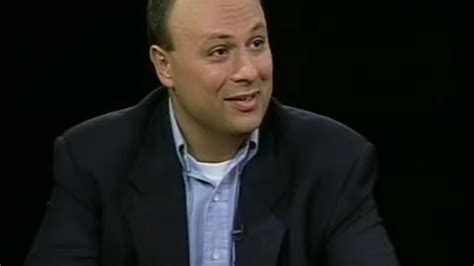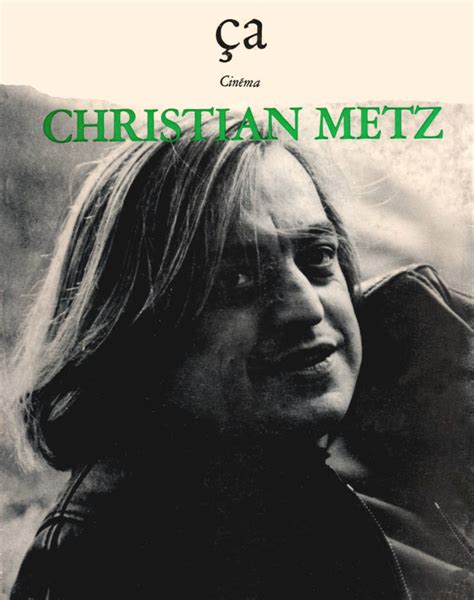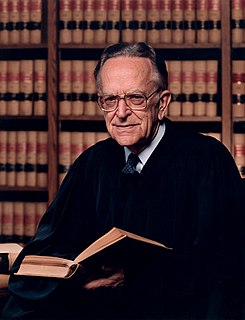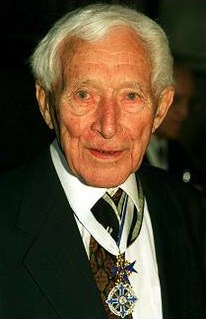A Quote by Lorenzo Carcaterra
Gangsters live for the action. The closer to death, the nearer to the heated coil of the moment, the more alive they feel. Most would rather succumb to a barrage of bullets from a roomful of sworn enemies than to the debilitation of old age, dying the death of the feeble. A gangster becomes as addicted to the thrill of the battle and the potential to die in the midst of it as he does to he more attractive lures in his path. In his world, the potential for death exists every day. The better gangsters don't shy away from such a dreaded possibility but rather find comfort in its proximity.
Quote Topics
Action
Addicted
Age
Alive
Attractive
Away
Battle
Becomes
Better
Bullets
Closer
Comfort
Day
Death
Die
Does
Dying
Enemies
Every
Every Day
Exists
Feeble
Feel
Find
Gangster
Gangsters
Heated
His
Live
Midst
Moment
More
Most
Nearer
Old
Old Age
Path
Possibility
Potential
Proximity
Rather
Shy
Succumb
Sworn
Than
Thrill
World
Would
Related Quotes
When one existentially awakens from within, the relation of birth-and-death is not seen as a sequential change from the former to the latter. Rather, living as it is, is no more than dying, and at the same time there is no living separate from dying. This means that life itself is death and death itself is life. That is, we do not shift sequentially from birth to death, but undergo living-dying in each and every moment.
But we are not interested in death at all: rather, we escape the facts, we are continuously escaping the facts. Death is there, and every moment we are dying. Death is not something far away, it is here and now: we are dying. But while we are dying we go on being concerned about life. This concern with life, this over concern with life, is just an escape, just a fear. Death is there, deep inside - growing.
[N]either in war nor yet at law ought any man to use every way of escaping death. For often in battle there is no doubt that if a man will throw away his arms, and fall on his knees before his pursuers, he may escape death; and in other dangers there are other ways of escaping death, if a man is willing to say and do anything. The difficulty, my friends, is not in avoiding death, but in avoiding unrighteousness; for that runs faster than death.
Photography is linked with death in many different ways. The most immediate and explicit is the social practice of keeping photographs in memory of loved beings who are no longer alive. But there is another real death which each of us undergoes every day, as each day we draw nearer to our own death. Even when the person photographed is still living, that moment when she or he was has forever vanished.
If we desire to end our days in joy and comfort, let us lay the foundation of a comfortable death now betimes. To die well is not a thing of that light moment as some imagine: it is no easy matter. But to die well is a matter of every day. Let us daily do some good that may help us at the time of our death. Every day by repentance pull out the sting of some sin,that so when death comes, we may have nothing to do but to die. To die well is the action of the whole life.
If things do not exist as fixed, independent entities, then how can they die? Our notion of death as the sudden expiration of that which was once so real starts to unwind. If things do not exist in their own right and are flickering rather than static, then we can no longer fear their ultimate demise. We may fear their instability, or their emptiness, but the looming threat of death starts to seem absurd. Things are constantly dying, we find. Or rather, they are constantly in flux, arising and passing away with each moment of consciousness.
It is a common error, and the greater and more mischievous for being so common, to believe that repentance best becomes and most concerns dying men. Indeed, what is necessary every hour of our life is necessary in the hour of death too, and as long as one lives he will have need of repentance, and therefore it is necessary in the hour of death too; but he who hath constantly exercised himself in it in his health and vigor, will do it with less pain in his sickness and weakness; and he who hath practiced it all his life, will do it with more ease and less perplexity in the hour of his death.
What if it is for life's sake that we must die? In truth we are not individuals; and it is because we think ourselves such that death seems unforgivable. We are temporary organs of the race, cells in the body of life; we die and drop away that life may remain young and strong. If we were to live forever, growth would be stifled, and youth would find no room on earth. Death, like style, is the removal of rubbish, the circumcision of the superfluous. In the midst of death life renews itself immortally.
From this day forward, I no longer shall tinker with the machinery of death. For more than 20 years I have endeavored - indeed, I have struggled - along with a majority of this Court, to develop procedural and substantive rules that would lend more than the mere appearance of fairness to the death penalty endeavor. Rather than continue to coddle the Court's delusion that the desired level of fairness has been achieved and the need for regulation eviscerated, I feel morally and intellectually obligated to concede that the death penalty experiment has failed.
The (capital punishment) controversy passes the anarch by. For him, the linking of death and punishment is absurd. In this respect, he is closer to the wrongdoer than to the judge, for the high-ranking culprit who is condemned to death is not prepared to acknowledge his sentence as atonement; rather, he sees his guilt in his own inadequacy. Thus, he recognizes himself not as a moral but as a tragic person.




































